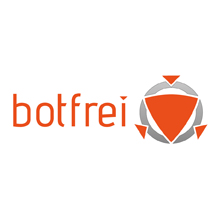• Banking Trojans are still installed on thousands of computers in Germany
• Many users ignore warnings of their Internet providers
• Numerous Android smartphones are still affected
Many PCs and smartphones in Germany are still infected with malicious software which was distributed through the Avalanche botnet. “Most users are still ignoring the warning instructions of their Internet providers to check their end-user devices,” says Peter Meyer, Botfrei Project Manager, a service of eco – Association of the Internet Industry. “In particular, the banking Trojan which has infected hundred thousand PCs in Germany thanks to the Avalanche botnet remains a serious threat.” The malicious programs provide cybercriminals with full access to banking accounts, which enable them to carry out money transfers.
This is why the eco Association recommends that all Internet users to check their PCs, laptops, and Android smartphones with a current anti-virus program or the free Botfree EU Cleaner software . This is particularly relevant for users who have already been warned by their Internet providers about a possible infection, but have so far failed to address the threat.
The damage caused by cybercrime networks is still prevalent
Up until the beginning of December 2016, the international botnet Avalanche, a blackmail Trojan, succeeded in compromising hundred and thousands of computers in Germany through spam and phishing e-mails. On 1 December 2016, after four years of intense investigation, an international team of detectives announced the dismantlement of the globally operating cybercrime network. Since then, the German Computer Emergency Response Team of the Federal Administration (CERT-Bund) has informed Internet providers about IP addresses that might have fallen victim to malware infection through the Avalanche botnet. Many Internet providers have forwarded this message to its customers, yet only a small fraction has actually eliminated the infection.
Banking Trojans on many Android smartphones
“Many users who became victims of the Avalanche cybercrime network are obviously not aware of it,” Peter Meyer says. “In particular, users of Android smartphones do not know how vulnerable their mobile devices really are to malware software. In this way, they jeopardize, for instance, their banking transactions.” The investigators identify Avalanche as one of the largest infrastructures to operate botnets worldwide. During the investigations, 39 servers and several hundred thousand domains were confiscated. Today, there are no new infections through Avalanche; however, the previous infections are still too hesitantly removed by users.

-
Cornelia Schildt cornelia.schildt@eco.de



